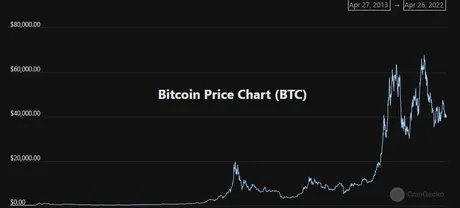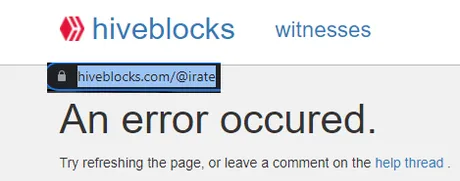

Market Watch Preamble.
Hey guys when do you think this bear market will end?
WHAT BEAR MARKET?
Where is the bear market?
Point to the bear market!
Where did the bear market hurt you?
Why does no one call out this nonsense?
Mindblowing.
Trading within a $30k-$60k range for 18 months is not a fucking bear market. So so obviously. Welcome to the best Bitcoin stability has to offer.
2022 Bitcoin Doubling Curve
| Jan | Feb | Mar | April | May | June |
|---|---|---|---|---|---|
| $27733 | $29867 | $32,000 | $34133 | $36267 | $38400 |
| July | Aug | Sept | Oct | Nov | Dec |
|---|---|---|---|---|---|
| $40533 | $42667 | $44800 | $46933 | $49067 | $51200 |
We will never EVER be in a bear market until Bitcoin mega-bubbles again, which it very well may never do. In fact we should hope that it doesn't happen because if it does that means banks, governments, and corporations went full FOMO and the ones who buy the top will get legitimately bankrupted from their stupid financial move. Hopefully El Salvador got in early enough to avoid such a fate, but I doubt it. People have a way of doubling and tripling down when they are up huge because easy come easy go. Onto the real post.

iRate
iRate is an idea I had years ago when trying to theory-craft how to fix our broken reputation system. Let's see if I can find all my old posts on reputation and Silk Road and all that.
https://peakd.com/hive-167922/@edicted/reputation-for-liquidity
Here's a post I wrote about providing reputation and rewards to users that offer liquidity to the market. January 2020... right before COVID. LOL... also right before DEFI got huge. This is an idea that is now totally worthless now that AMM farms have taken over and shown that they are superior to orderbooks. They can't all be winners, fam!
https://peakd.com/reputation/@edicted/more-on-decentralized-reputation-systems
https://peakd.com/steemleo/@edicted/steemleo-liquidity-critical-ratio-0-22-reputation
SteemLEO?
WTF is a SteemLEO?
https://peakd.com/reputation/@edicted/why-distributed-reputation-is-immune-to-sybil-attack
https://peakd.com/utopian-io/@edicted/soul-shards-reputation-credit-loan-coin-of-the-steem-blockchain
Here's a sweet idea that I'd eventually still like to implement.
Basically every account on Hive would get airdropped a "Soul" and you could split up and sell your soul to other people with a contract to buy it back later. Basically a decentralized loaning protocol. Unfortunately it needs (or at least would benefit from) support from another reputation system like iRate.
https://peakd.com/reputation/@edicted/decentralized-reputation-explained-odd-point-dynamic-rating-system
Oh yeah I forgot about this one...
A modular odd-point reputation system. Christ almighty I need to start coding again.
https://peakd.com/reputation/@edicted/silk-road-dark-web-trusting-anonymous-sources-with-decentralized-reputation
Ah here's my Silk Road post.
I did research on Silk Road's reputation system because clearly since they were smuggling drugs all over the world their systems must of had something special about them. They... DID NOT! I was shocked to find out that the reputation system on Silk Road was just as bad (if not worse) than things like Yelp or Google Maps. Mindblowing.
However, I did draw a very necessary conclusion.
The biggest problem with reputation systems is that they are unidirectional. Someone writes a review, and that person has nothing to lose and nothing to gain by writing the review. When we look at reviews on Yelp, what do we often see? Some entitled dipshit who was rude to the staff, didn't tip anything, and then gives a 1 star review because they had to wait 30 seconds to get a glass of water.
This person's review does not matter. It has a value of zero. It counts for zero, and it should have zero effect on how that restaurant is rated. But yet Yelp goes ahead and throws that 1-star review into the average like it's a valid opinion. No, you are not entitled to your opinion. Sorry not sorry. GTFO.
Thus, the key to truly decentralized reputation is to create a synergistic network where there is a financial incentive for all parties to provide accurate information. After all, that's all reputation is: data organized in a specific way.
So when that dipshit gives their 1-star review, not only will it not be counted toward the average of what they are reviewing, but their personal reputation will go down within the system because they provided garbage information to the network.
In order for decentralized reputation to work, everyone must have a reputation. Anyone that gives a review needs a reputation. Anyone that offers a product or service needs a reputation (the standard). Surprisingly, the only way to actually make something like this work is by using crypto.
Without crypto, there is no financial incentive to keep people honest. Without financial incentive, no one cares about their reputation. There must be something to gain in order for the system to work. A high reputation can be leveraged into real money by correctly allocating crypto inflation into a system such as this (likely using DPOS mechanics).
It is in these ways that Hive is so far ahead of the game and most people (even users that are already here) don't realize it. Everything on Hive is already set up to accommodate these exact functions. Most people lack vision and the foresight to see where this is all going. They look at Hive and they think, "Well I guess that thing is kinda-sorta working but it's not great..." Yes... it's kinda sorta working, which means it's only going to get better as we actually figure this stuff out. Crypto has never been a good solution, it's always been just good enough to actually work, whereas other implementations are abysmal systemic failures.

Why are you even talking about this now?
Well now that Elon Musk has taken over Twitter things are changing. My girlfriend linked me this TikTok about how he's now saying he wants to open source the algorithm so that everyone can see what's going on there and improve upon it.
Of course this person (along with 99% of the other liberals my girlfriend follows) thinks Elon Musk is some dipshit supervillain that has no idea what he's doing. Spoiler alert: you have to pick one. Supervillains aren't incompetent. I see him more as a bond villain but meh that's just me.

Open sourcing the algorithm is obviously a great idea, and this vague "it's an invasion of privacy" argument is pretty irrelevant. Look at Hive, all the data is already 100% public. If Musk open-sources the Twitter algo, we might be able to use parts of it and incorporate that directly into Hive. That would be a massive upgrade for us.
What is the connection between these algorithms and reputations systems?
They are actually the exact same thing. You see, because WEB2 can not monetize a reputation system and get their own users to build these things out, they have to create algorithms that guess reputation and guess what their users would like to see. Then they start tweeking the algo to make money, and that's when it all goes to shit.
WEB3 can actually create a system where everyone is getting paid to supply valuable data to the network. As people build their own reputation on the platform their opinion becomes more and more valuable with that context. Again, this is something that WEB2 could never hope to achieve, but we can accomplish such a task over here in crypto land. When we do it will be a massive fundamental gain; one that will be copied many times over across the cryptosphere, just like everything else of value within crypto.
iRate Branding
iRate is also a hilariously great name for a reputation system because it bites off brands like iPhone and it spells the word irate, which means to be enraged, and it has the word rate in there to imply the underlying rating system. Not gonna lie it is perhaps the best brand name I've ever come up with and years ago I fumbled the creation of the irate account and lost the keys immediately on creation (doh). An error has occured...? Weird

Fortunately owning the account is totally unimportant as the protocol doesn't even need an account to govern it. It's basically just a permissionless frontend that organizes the data in a useful way to provide reputation information in a way that isn't totally useless (as is the case now).
Um... how though?
Reputation is simply an informed opinion that's been consolidated reductively from many people into an idea attached to a single person/identity. The reputation that Steemit Inc incorporated all those years ago was 100% money/upvote-based (which is obviously crap and has been gamed into the dirt multiple times now). This is a system that doesn't measure anyone's opinion. It's just loosely tracking the flow of money on the network over time. Not helpful.
What needs to happen is a system that gives everyone a voice. I could write down a list of accounts that I trust, and everyone on the Hive network would be able to see that knowing full well only someone with access to my posting key could have signed that data to the chain. Once I have declared this list of accounts that I trust, anyone that trusts my account can use that information within their own custom algorithm. This would be layer 2 (or 1 standard deviation) reputation.
Layer 1 reputation
These are the accounts that you know and trust personally. They are on your personal list of accounts that can be trusted. Anyone that trusts you may also choose to trust accounts you trust.
Layer 2 reputation
These are accounts that are trusted by people you trust. Friends of friends, so to speak. For people that trust you, this would be their layer 3.
Layer 3 reputation
Friends of friends of friends.
Too many derivatives, too many people.
This is the final layer before everything goes to shit.
Anything past this is worthless, as the sample size is too large/corrupted.
Opinion-based reputation solves a lot of issues.
On something like Twitter or Facebook, the algorithm is GOD. It is the centralized agent that determines all the content that's going to end up on your wall. Not very helpful when looking for a decentralized solution. However, a centralized algorithm can be modified and cloned to accommodate a decentralized system where everyone is running their own algorithm (or the same algorithm with their unique data plugged into it).
Conclusion
It would take way too long to explain this thing in full, so I'll just leave it at that with the basics (most of the info is contained in the old links anyway). We have the power to create a social media algorithm and a reputation system here that is simultaneously superior to all WEB2 social media, while still being immune to Sybil attack and not even requiring KYC. Truly, we have the opportunity to get the best of everything with none of the downsides.
On top of all that, such a reputation system would pay people for their opinions, which is basically what Hive already does but this 'job' would have more focus to it and the data organized in a way that allows anyone to search through it much easier than we can do with blog posts.
At the end of the day reputation, identity, and the associated Sybil attack vector (pretending to be more than one person) is not just a crypto problem. This is a deep-seeded societal issue. Who ever solves it first is going to generate a massive amount of wealth for everyone concerned. By solving reputation, we can solve dozens of issues all at the same time and create a suite of apps that use the data from the system. Solving reputation solves everything; to who our leaders should be to product reviews to wealth distribution to news/information outlets to peer-to-peer loans and whatever else. Easier said than done, I'm afraid, but it's worth a try.
Posted Using LeoFinance Beta
Return from iRate! to edicted's Web3 Blog
